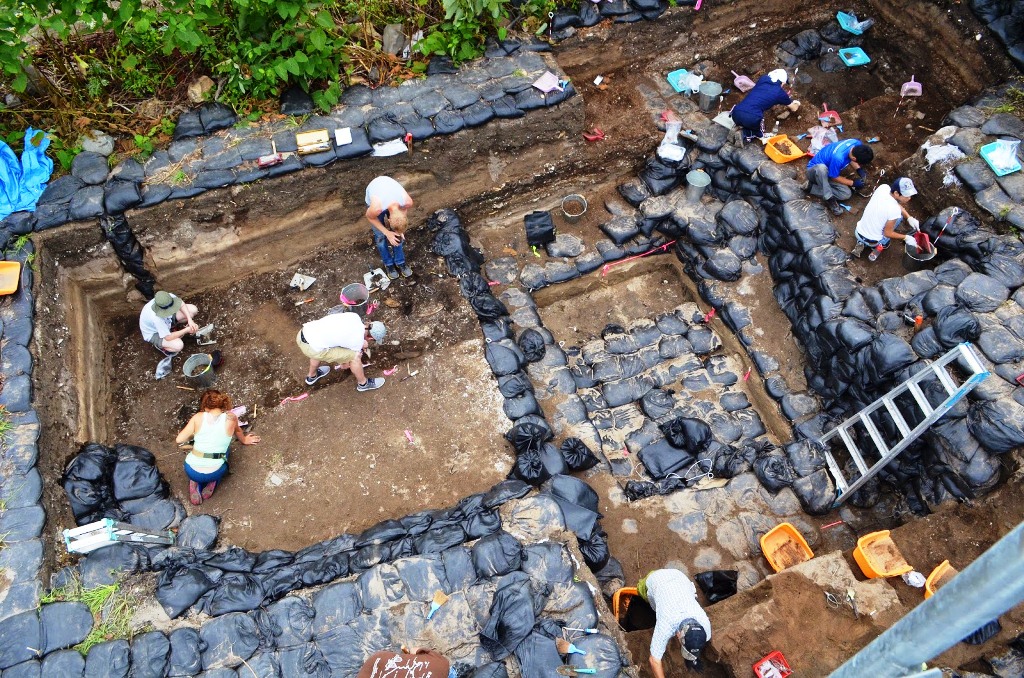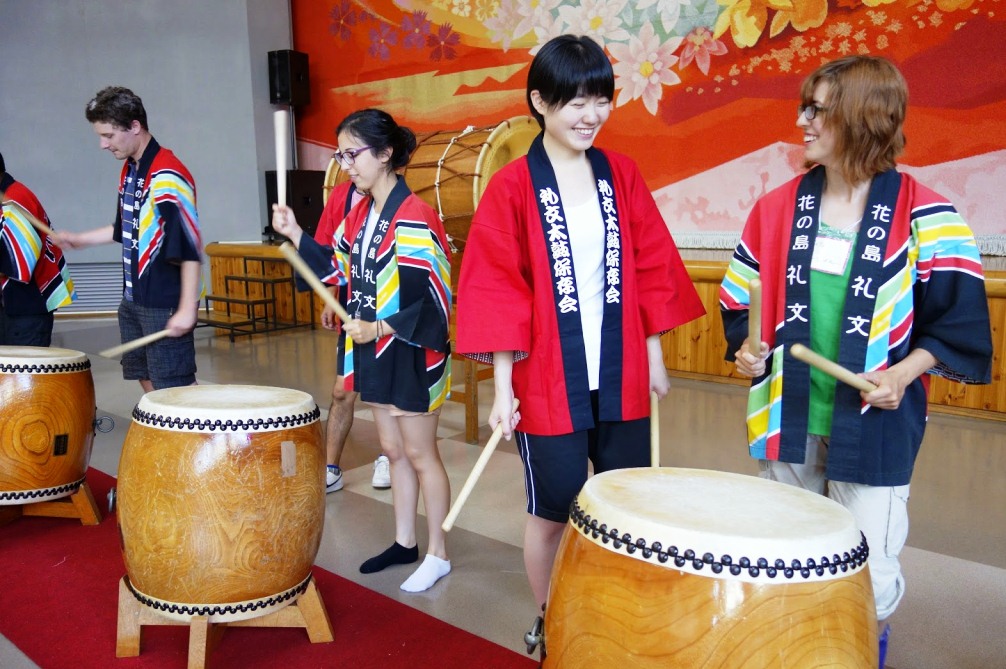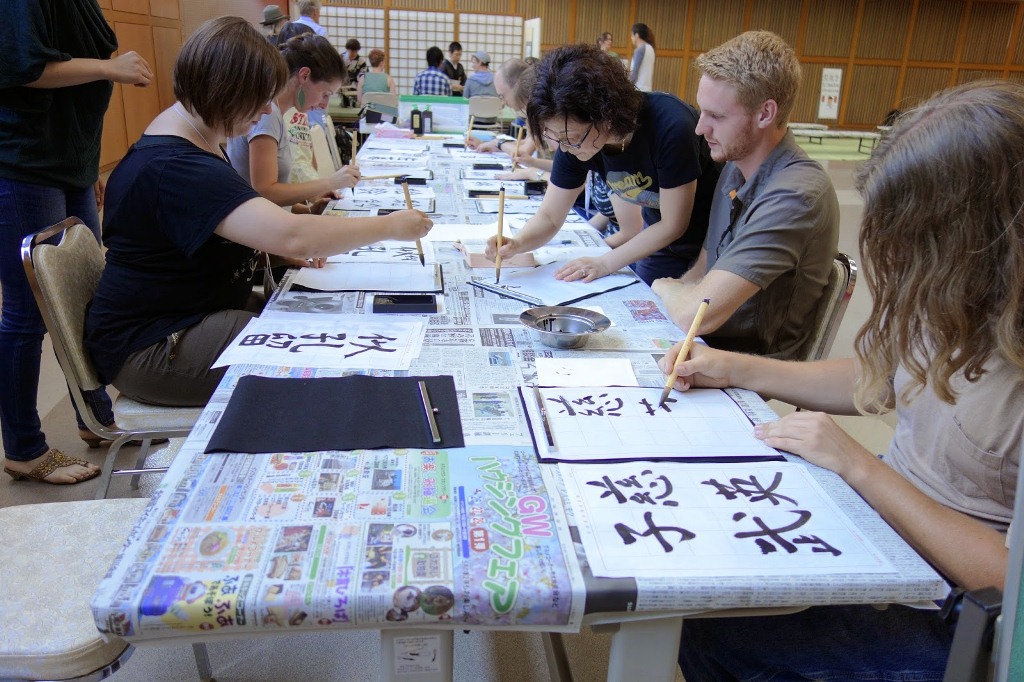Rebun Island 2014
Between July 24th and August 31st, 2014, the Department of Anthropology at the University of Alberta was able to offer 11 undergraduate students from around the world the opportunity to take a 6-credit Archaeological Field Training course on Rebun Island, Hokkaido, Japan.

The course, led by Dr. Andrzej Weber, was designed to provide students with the opportunity to become competent in archaeological field methods through the hands-on excavation and analysis of Hamanaka-2, a multi-layered archaeological site. Hamanaka-2 is an extraordinary site, with a record of continuous occupation from approximately 3,000 BC - present, that has yielded a diverse range of archaeological materials (e.g. shell remains, animal bones, human burials, ritual deposits, pottery, stone tools, metal objects, hearths, etc.). This season, we were particularly fortunate to find a number of unusual items, including several dog burials, a stone tool manufacturing site, and a ritual killer whale deposit.
In addition to developing practical skills in archaeological field methods, the field school also offered students the opportunity to experience life in a small, rural Japanese fishing village. Field school students were able to participate in a number of unique cultural events, such as:

Taiko Drumming lessons,

Japanese Caligraphy Class,

and a traditional-style Tea Ceremony,

along with local Street Festivals and Japanese Fireworks Parties.
Given the success of this year's field school, the Department looks forward to offering it again in Summer 2015. For details, please visit our site. -Erin Jessup